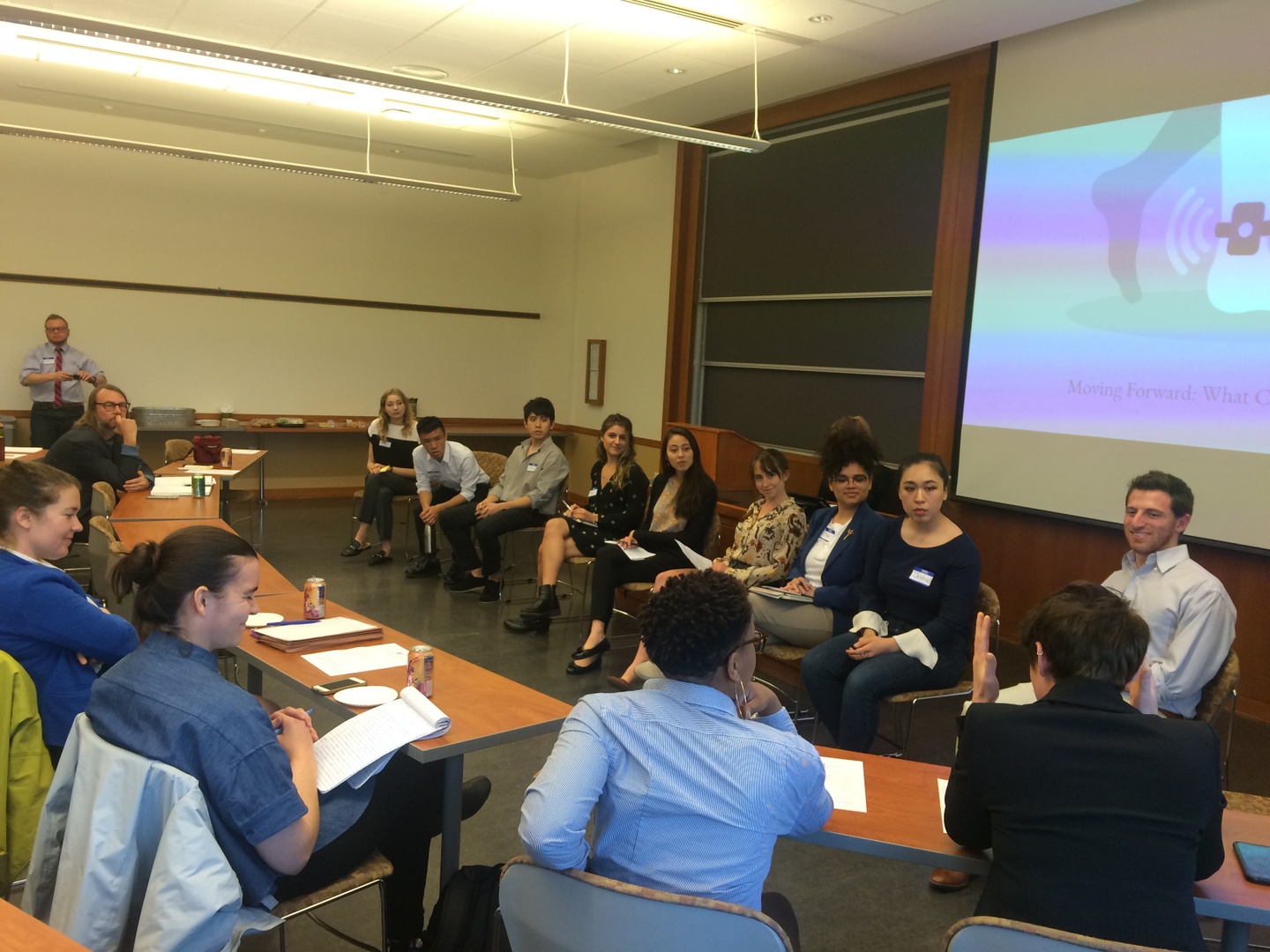In\Visible St. Louis: People, Place, and Power in the Divided City
2019-05-07 • Liz Kramer

Spring 2019 interdisciplinary seminar led by professor David Cunningham, associate professor Patty Heyda, and assistant professor Caitlyn Collins
In\Visible St. Louis: People, Place, and Power in the Divided City was the first collaboration between the Sam Fox School and the newly re-formed Department of Sociology. Originally conceived by Sam Fox School faculty member Patty Heyda along with Arts & Sciences faculty members David Cunningham and Caitlyn Collins (both sociology), the course utilized a wide range of methods from different disciplines to give students an understanding of how segregation impacts spatial and social constructs.
The class was organized around a collaborative research project, centered on an issue that is pressing in the St. Louis region. The students and faculty partnered with ArchCity Defenders (ACD), a local nonprofit civil rights firm that provides legal advocacy and combats the criminalization of poverty and state violence against poor people and people of color. The project focused on e-carceration, a little-understood facet of the criminal justice system where prisoners or paroles are monitored via electronic tracking systems for extended periods of time. These systems are provided by for-profit companies (EMASS), and defendants are charged fees to use them. This compounds the debtors-prison cycle of poverty and challenging individuals’ civil rights protections.
Students learned and used interdisciplinary research methods including GIS and mapping, data visualization, ethnographic approaches, personal interviews, archival research, site visits, and journalism to dive into research on this problem in the St. Louis context. Students worked independently or in pairs to scope their own research angles, and then brought their disciplinary lens to the approach of their questions. Their final projects included detailed interviews, historical research, data gathering and analysis that illuminated the complexity of people’s encounters with the EMASS system. Students spoke with many people involved in the criminal justice system, including members of the St. Louis Police as well as to individuals who had been arrested and were under EMASS supervision. The students’ mapping showed the complexity of defendants’ being “innocent until proven guilty” while also being surveilled and managing the intersecting challenges of limited transportation and strict curfew hours, on top of added fees.
The students’ research was shared with ACD to help support their ongoing advocacy and policy change directions for this topic, and the faculty and students will continue to collaborate with the partner team in the second year of the class this Spring 2020.
Partners
ArchCity Defenders
Support
The Divided City Initiative